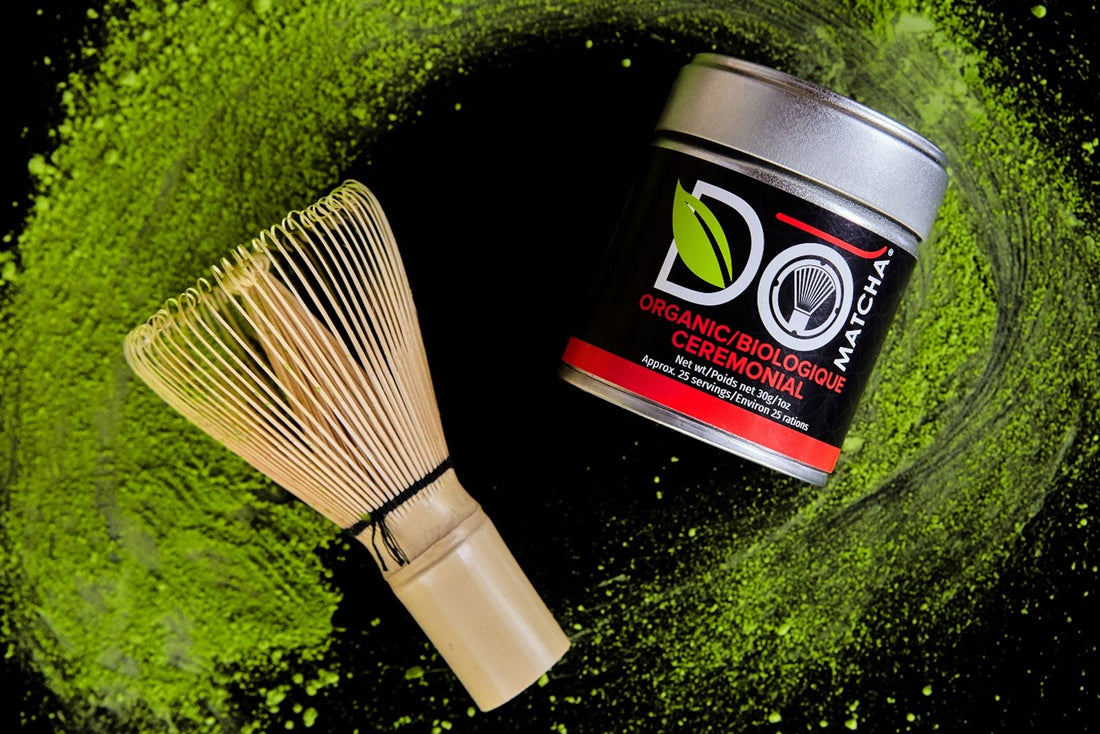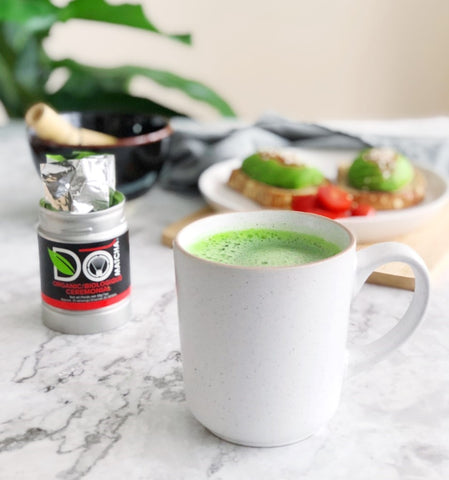
Is Organic Ceremonial Matcha Better than Non-Organic?
Share
In recent years, the popularity of matcha has soared, with health-conscious consumers seeking out this vibrant green tea for its numerous benefits. Among the considerations when purchasing matcha is whether to opt for organic or non-organic varieties. While both offer their own advantages, the choice between organic ceremonial matcha and non-organic matcha ultimately comes down to personal preferences and priorities. Let's explore the factors to consider when deciding which option is best for you.
What is Organic Matcha?

Organic matcha is produced without the use of synthetic pesticides, herbicides, or fertilizers. Instead, organic farmers employ natural and sustainable methods to cultivate and protect their tea plants, ensuring minimal impact on the environment and maximum purity in the final product. Certified organic matcha undergoes rigorous testing and certification processes to meet strict standards set by organic certification bodies. Each country has their own certification process, for example, Japan has Japan Organic and Natural Foods Association JONA as the regulatory body, and the United States has United States Department of Agriculture (USDA). DōMatcha® organic matcha is certified organic in Japan, USA, Canada, and internationally.
Benefits of Organic Ceremonial Matcha
Purity: Organic ceremonial matcha is free from synthetic chemicals and GMOs, providing a cleaner and more natural option for those concerned about pesticide residues and environmental toxins.
Environmental Sustainability: Organic farming practices promote soil health, biodiversity, and conservation, reducing the carbon footprint of matcha production and supporting eco-friendly agriculture.
Health Considerations: Choosing organic matcha may reduce exposure to potentially harmful substances, promoting overall well-being and peace of mind.
Non-Organic Matcha
Non-organic matcha may be grown using conventional agricultural methods, which may involve the use of synthetic chemicals to control pests and enhance yields. While non-organic matcha can still offer exceptional flavor and quality, some consumers prefer to opt for organic options due to concerns about potential pesticide residues and environmental impact.
It’s important to note that organic certification for matcha wasn’t common until the late 2000s. Very few farmers in Japan wanted to bear the costs of getting certified, even though many were technically employing organic farming methods. However, demand has skyrocketed in North America, enough so that it’s become more plausible for tea farmers to get certified. Due to rapid popularization of organic and sustainable farming practices, the organic label is common in matcha nowadays.
Factors to Consider

When deciding between organic ceremonial matcha and non-organic matcha, consider the following factors:
Preference for Organic Products: If you prioritize organic foods and beverages in your diet, organic ceremonial matcha may align with your values and preferences.
Quality and Flavor: While organic certification ensures certain standards of production, non-organic matcha can still be of high quality and offer excellent flavor profiles. Consider tasting both varieties to determine which one best suit your palate.
Budget: Organic ceremonial matcha may come with a higher price tag due to the cost of organic certification and the labor-intensive nature of organic farming practices. If budget is a concern, non-organic matcha may be a more affordable option.
The DōMatcha® Difference
All DōMatcha® matcha (organic and non-organic) is tested by an independent lab. We can guarantee no detectable residual chemicals from pesticides, herbicides, fungicides, or radiation. In fact, once the tins arrive in our warehouse in Canada, they are tested again to ensure quality and safety. We are committed to provide the utmost quality and safety in our matcha products. Our organic Ceremonial matcha and Summer Harvest is cultivated in an entirely different tea field than non-organic varieties, in Kagoshima, Japan. Our non-organic Ceremonial, Summer Harvest, Master’s Choice, and Master’s Decaf are grown in Uji, Kyoto, a prestigious growing region and home to some of the best matcha in the world.
In conclusion, the choice between organic ceremonial matcha and non-organic matcha depends on individual priorities, including concerns about pesticide residues, environmental sustainability, and costs. Both options can offer exceptional flavor and quality, so explore your options and choose the matcha that aligns with your values and tastes for a truly satisfying tea experience.